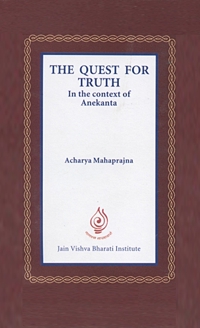
Man and society are two realities.
The individualistic philosophers believe
- that man by himself exists as a human being outside of society.
In other words, they say man can live without society.
This belief implies that before man became part of a society, he was an individual in his own right; that for the security of his property, rights and life or for the attainment of some other goal, man founded the institution of a society.
The socialist philosophers believe
- that man and society cannot be separated from one another.
In the history of human development, man and society have both figured with equal importance.
Anekanta defines man and society in relation to each other.
- In a man both individualistic and social traits are found.
- Man's capabilities define his individuality.
Their expressions are part of his social skills.
That is why individuals and society are different from one another.
Man's individuality can never be non-existent.
In spite of remaining an integral part of society, man still retains his individuality.
In this context, man is different from society. - Man develops his desires, aspirations and activities through interdependence and exchange.
In this context, man is not different from society.
- Man's capabilities define his individuality.
But in the very same context, where man develops his desires, aspirations and activities and establishes inter-dependence in society, he is also different.
Man is limited by his feelings.
The man, who experiences love, happiness, fear and grief, is a complete man.
- These feelings are not common in terms of experience; they cannot be exchanged or substituted; they cannot be given to another
- Exchange is the bridge between man and society. On one side of it is man and on the other side is society.
- The fundamental base of an individual is his emotions
- The fundamental base of society is exchange.
 Acharya Mahaprajna
Acharya Mahaprajna


